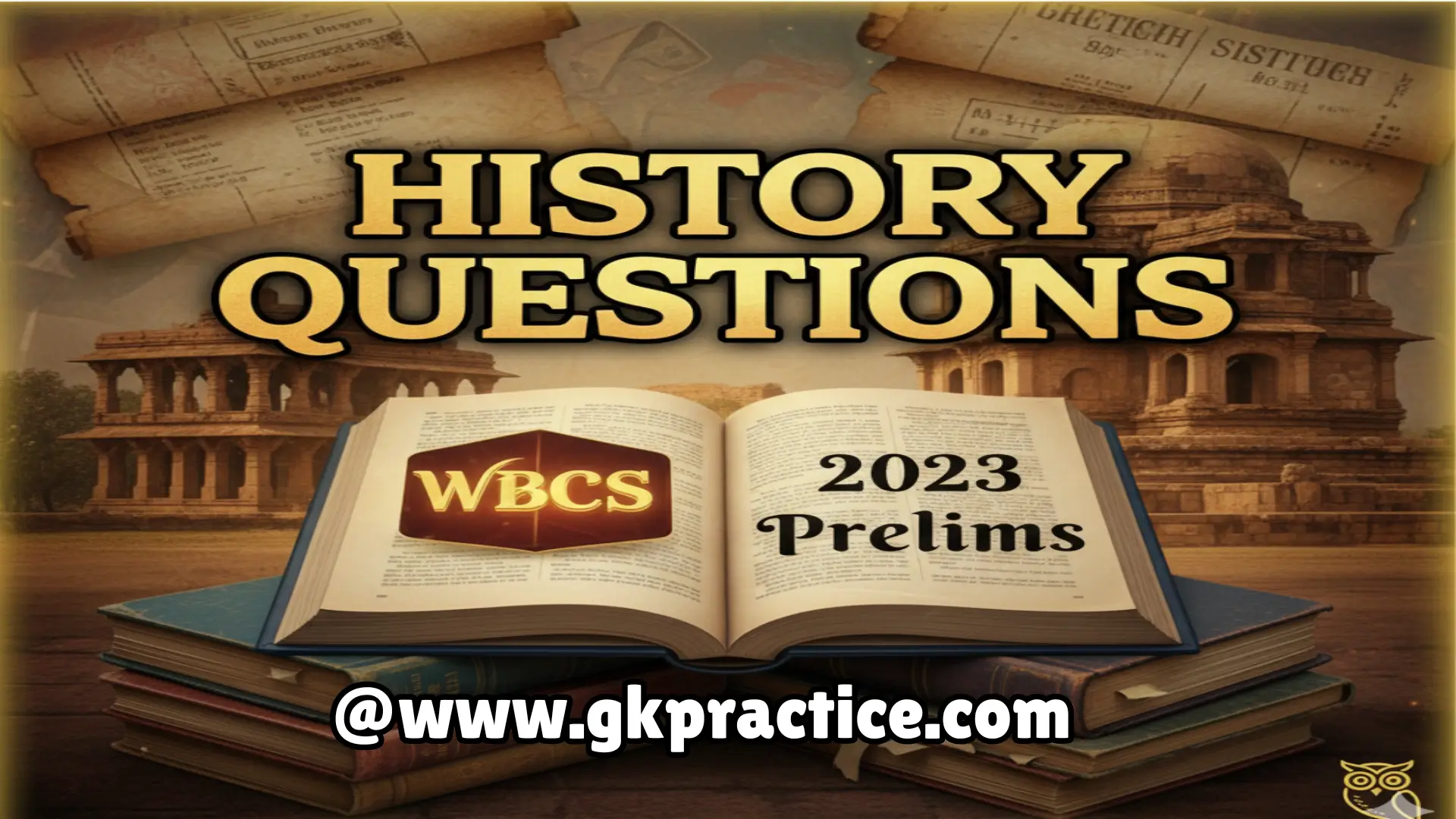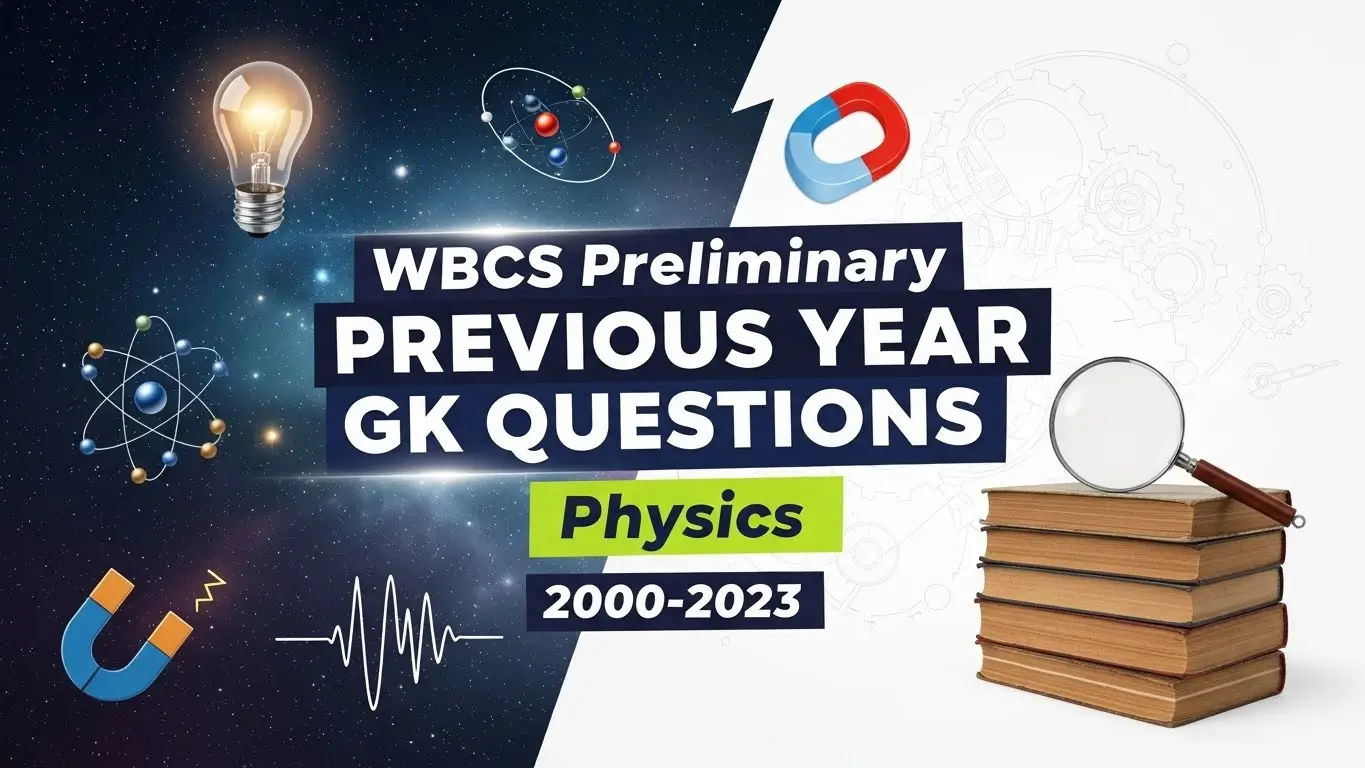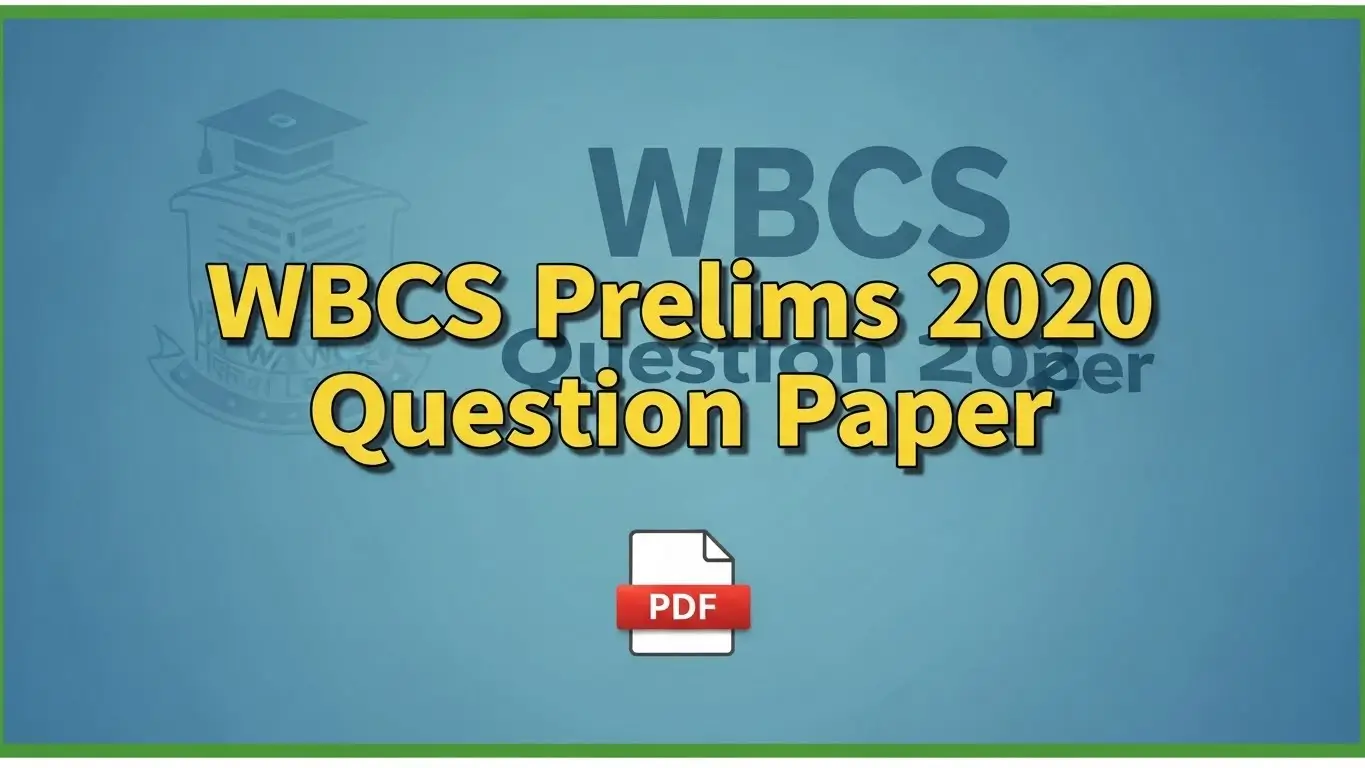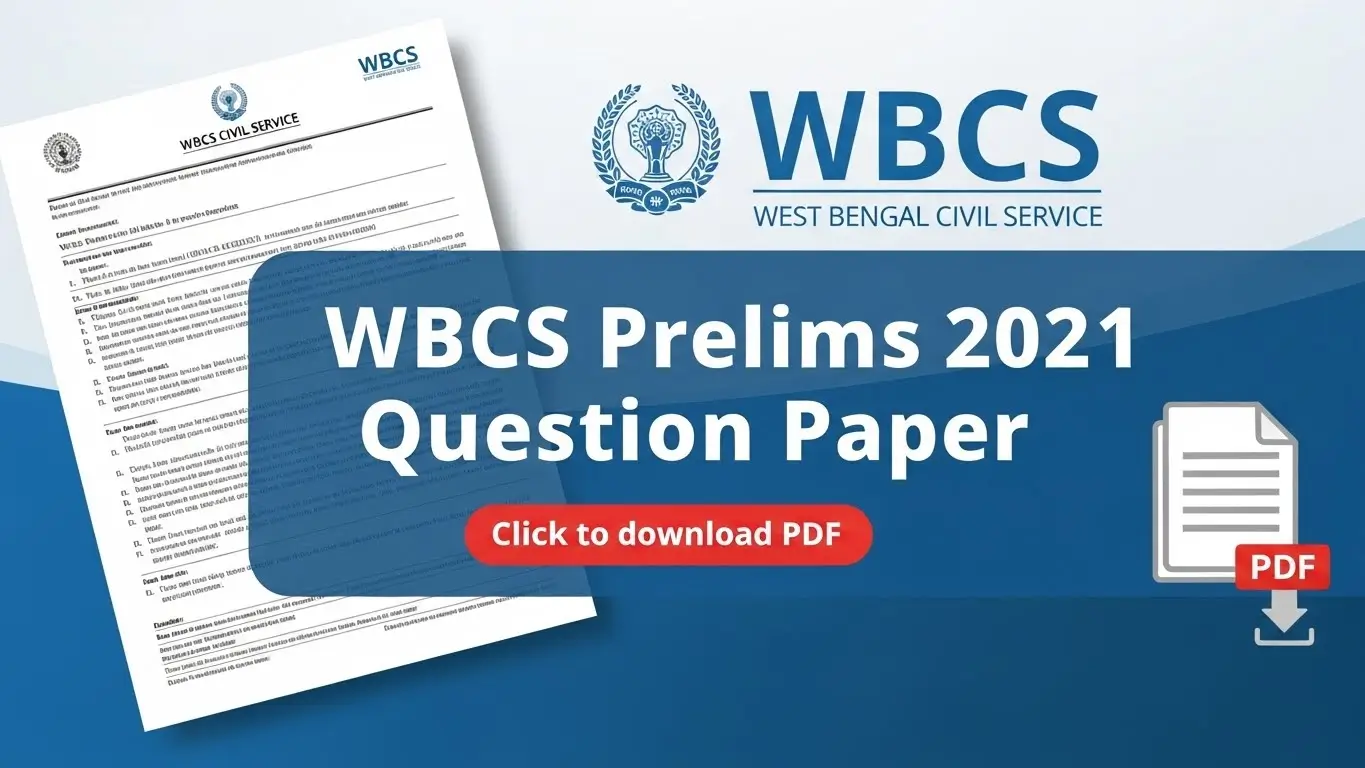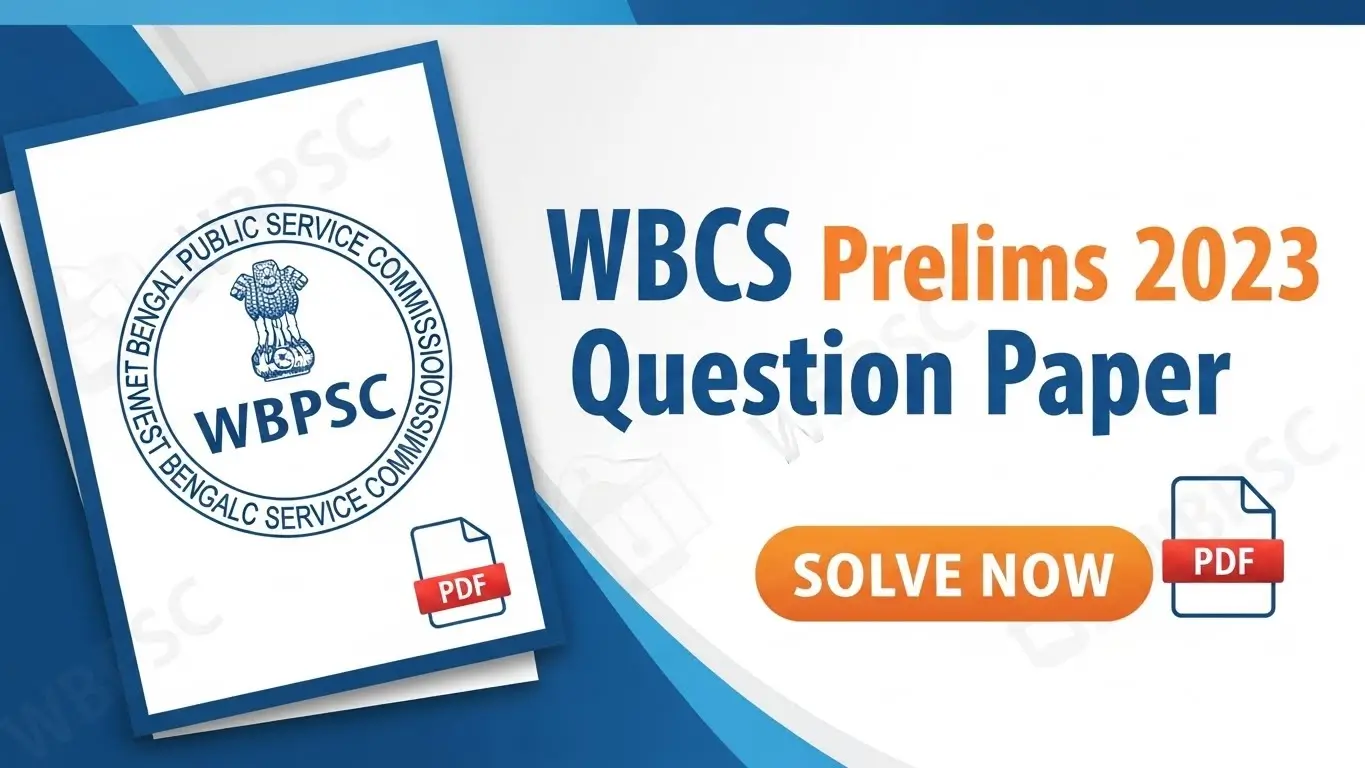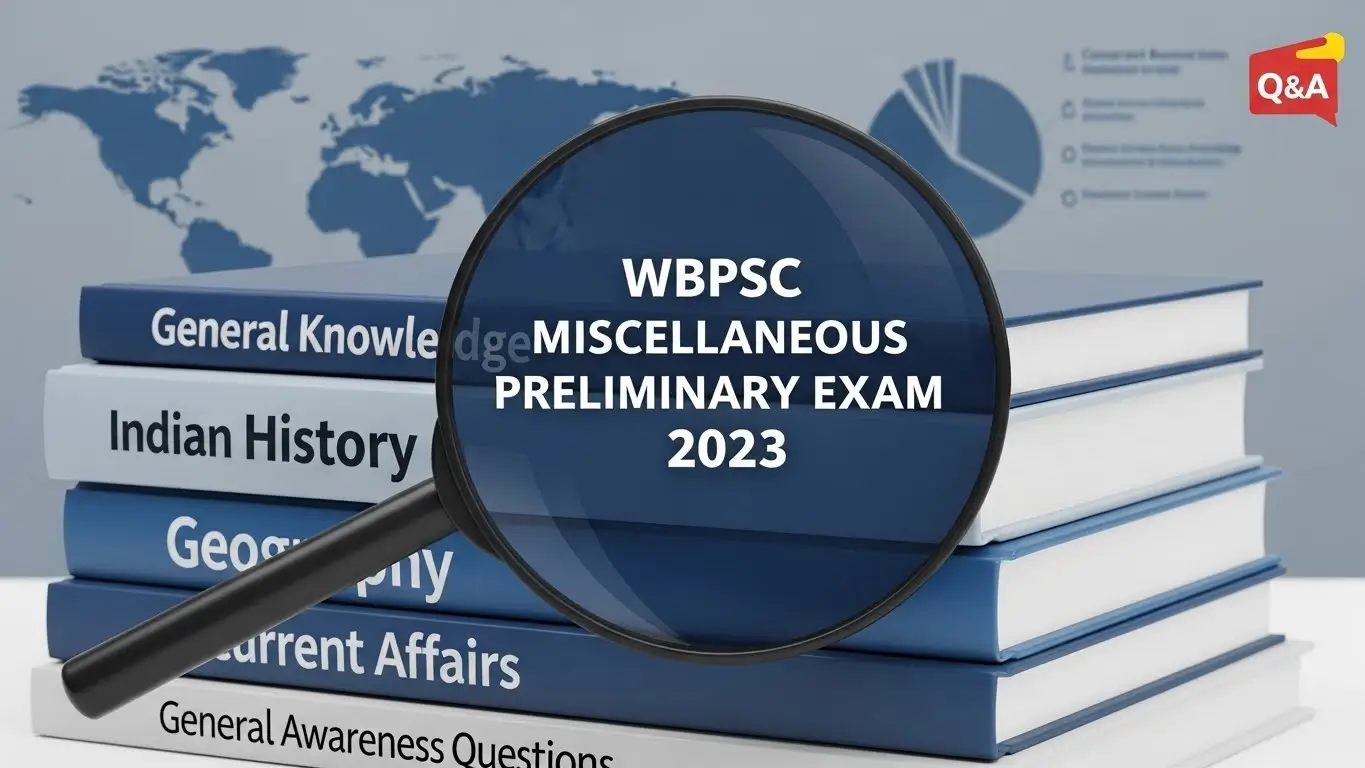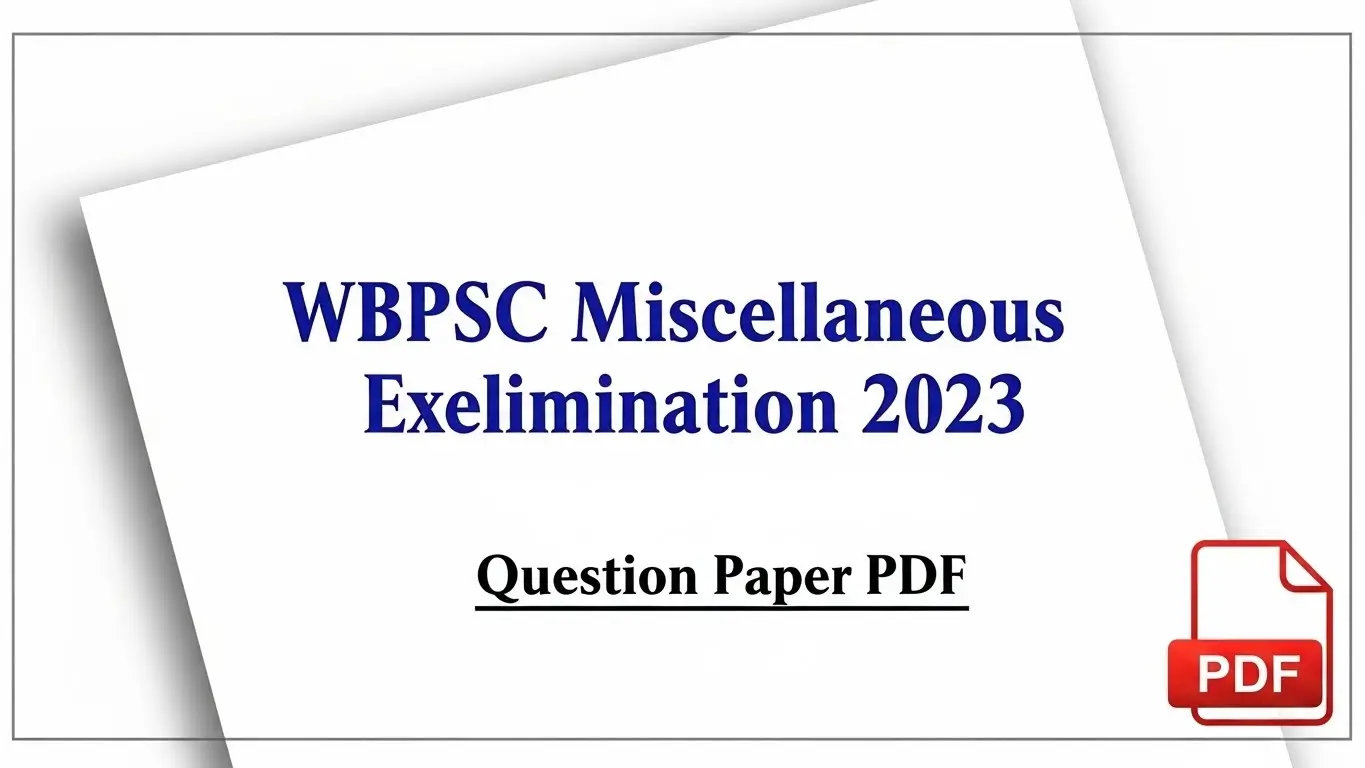WBCS ২০২৩ প্রিলিমিনারি ইতিহাস প্রশ্নসমূহের পূর্ণ তালিকা এবং তাদের বিশ্লেষণ সহ গুরুত্বপূর্ণ তথ্য পাবেন।
পরীক্ষার প্রস্তুতিতে এটি হবে আপনার জন্য মূল্যবান রেফারেন্স।
কে মন্তব্য করেছিলেন: “কংগ্রেস আসলে অস্ত্রবিহীন গৃহযুদ্ধ”?
(A) Lord Dufferin (লর্ড ডাফরিন)
(B) M. A. Jinnah (এম. এ. জিন্নাহ)
(C) Sir Syed Ahmad Khan (স্যার সৈয়দ আহমদ খান)
(D) Lord Curzon (লর্ড কার্জন)
Explanation: Lord Dufferin, Viceroy of India (1884–1888), described the Congress as a “civil war without arms” because he saw it as a political body that could challenge British rule peacefully.
Q2) Who was the Tenth and Last Guru of the Sikhs?
শিখ সম্প্রদায়ের দশম ও শেষ গুরু কে ছিলেন?
(A) Guru Ram Das (গুরু রাম দাস)
(B) Guru Hargobind (গুরু হরগোবিন্দ)
(C) Guru Govind (গুরু গোবিন্দ)
(D) Guru Tegh Bahadur (গুরু তেগ বাহাদুর)
Explanation: Guru Gobind Singh (1666–1708) was the 10th Sikh Guru. He created the Khalsa in 1699 and declared Guru Granth Sahib as the eternal Guru of the Sikhs.
Q3) The Vaikom Satyagraha was launched in 1924 for
১৯২৪ সালে বৈকোম সত্যাগ্রহ কেন শুরু হয়েছিল?
(A) opening the temples to the low castes Hindus. (নিম্নবর্ণের হিন্দুদের জন্য মন্দির খুলে দেওয়া)
(B) fighting against the exploitation by the landlords. (জমিদারদের শোষণের বিরুদ্ধে সংগ্রাম)
(C) removal of Press restrictions. (প্রেসের ওপর বিধিনিষেধ তুলে দেওয়া)
(D) democratization of the administration of Travancore state. (ত্রিবাঙ্কোর রাজ্যের প্রশাসনে গণতন্ত্র প্রতিষ্ঠা করা)
Explanation: The Vaikom Satyagraha (Kerala, 1924) was a movement against untouchability, demanding temple road access for the lower castes. It was supported by leaders like Gandhi and Periyar.
Q4) The first Satyagrahi selected by Mahatma Gandhi to launch the Individual Satyagraha in October 1940, was
অক্টোবর ১৯৪০-এ ব্যক্তি সত্যাগ্রহ শুরু করার জন্য মহাত্মা গান্ধী কর্তৃক নির্বাচিত প্রথম সত্যাগ্রহী ছিলেন
(A) C. Rajagopalachari (সি. রাজাগোপালাচারী)
(B) Vallabhbhai Patel (ভল্লভভাই প্যাটেল)
(C) Dr. Rajendra Prasad (ড. রাজেন্দ্র প্রসাদ)
(D) J. B. Kripalani (জে. বি. কৃপালানি)
Explanation: Gandhi launched Individual Satyagraha in 1940 as a protest against India’s forced participation in World War II. The first Satyagrahi was C. Rajagopalachari.
Q5) After the Surat Split in 1907, the second split in the Congress took place in 1918 on the issue of
১৯০৭ সালে সুরত বিভাজন শেষে ১৯১৮ সালে কংগ্রেসে দ্বিতীয় বিভাজন কোন বিষয় নিয়ে হয়েছিল?
(A) Lucknow Pact (লখনউ চুক্তি)
(B) Montagu Declaration (মন্টেগু ঘোষণা)
(C) Election of Mrs. Annie Besant as President of the INC (1917) (এ্যানি বেসান্টকে কংগ্রেসের সভাপতি নির্বাচিত করা (১৯১৭))
(D) Both (B) and (C) above (উপরের (B) ও (C) উভয়)
Explanation: In 1918, the Congress again faced division—one group welcomed the Montagu Declaration and Annie Besant’s leadership, while another opposed them. This became the second major split.
Q6) Who was the last Sultan of Delhi?
দিল্লির শেষ সুলতান কে ছিলেন?
(A) Firuz-Tughluq (ফিরুজ-তুগলক)
(B) Bahlul Khan Lodi (বাহলুল খান লোদী)
(C) Ibrahim Lodi (ইব্রাহিম লোদী)
(D) Sikandar Lodi (সিকান্দার লোদী)
Explanation: Ibrahim Lodi (1517–1526) was the last Sultan of Delhi. He was defeated by Babur in the First Battle of Panipat (1526), which marked the beginning of the Mughal Empire.
Q7) Who introduced ‘Din-i-Ilahi’?
‘দীন-ই-ইলাহী’ কে প্রচলন করেন?
(A) Babur (বাবর)
(B) Akbar (আকবর)
(C) Jahangir (জাহাঙ্গীর)
(D) Shahjahan (শাহজাহান)
Explanation: Akbar introduced ‘Din-i-Ilahi’ in 1582 as a new faith combining elements of Hinduism, Islam, Jainism, and Christianity to promote religious harmony.
Q8) The youngest President of the Indian National Congress, who held that office at the age of 35, was
ভারতের জাতীয় কংগ্রেসের সর্বকনিষ্ঠ সভাপতি, যিনি ৩৫ বছর বয়সে ওই পদে ছিলেন, তিনি
(A) Rash Bihari Ghosh (রাশ বিহারী ঘোষ)
(B) Subhas Chandra Bose (সুভাষচন্দ্র বোস)
(C) Abul Kalam Azad (আবুল কালাম আজাদ)
(D) Lala Lajpat Rai (লালা লাজপত রায়)
Explanation: Maulana Abul Kalam Azad became INC President in 1923 at the age of 35, making him the youngest ever to hold the post.
Q9) After the partition of Bengal, the two new provinces which came into existence were
বঙ্গভঙ্গের পরে কোন দুটি নতুন প্রদেশ গঠিত হয়?
(A) East Bengal and Bengal (পূর্ববঙ্গ ও বঙ্গ)
(B) East Bengal and West Bengal (পূর্ববঙ্গ ও পশ্চিমবঙ্গ)
(C) East Bengal and Assam (পূর্ববঙ্গ ও আসাম)
(D) East Bengal and North Bengal (পূর্ববঙ্গ ও উত্তরবঙ্গ)
Explanation: In 1905, Lord Curzon partitioned Bengal into two provinces—East Bengal & Assam (capital: Dacca) and West Bengal (capital: Calcutta).
Q10) The leader of the Ghadar Party in Bengal and Orissa was
গদর পার্টির বাংলা ও ওড়িশার নেতা কে ছিলেন?
(A) Jatindranath Mukherjee (যতীন্দ্রনাথ মুখার্জি)
(B) Jatindranath Das (যতীন্দ্রনাথ দাস)
(C) Barindra Ghosh (বারীন্দ্র ঘোষ)
(D) M. N. Roy (এম. এন. রায়)
Explanation: Jatindranath Mukherjee, popularly known as ‘Bagha Jatin,’ was a revolutionary who led the Ghadar Party activities in Bengal and Orissa against British rule.

